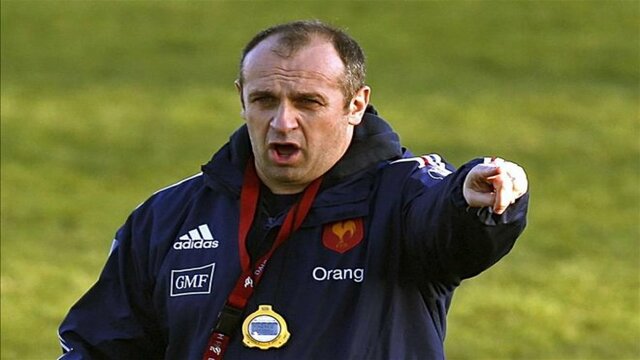Ireland’s encounter with France in Dublin on Saturday was not expected to be a pointer to the destiny of the wooden spoon, but with one victory between them in the opening three rounds, the loser will be confronting an indignity neither has endured since the Five Nations became six.
Ireland’s Declan Kidney is one of two coaches in the Six Nations who was in charge in the 2011 World Cup (the other, Warren Gatland, is on sabbatical from Wales as he prepares for the Lions tour to Australia), but he is not expected to last beyond the end of the tournament when his contract will end.
Since winning the grand slam in Kidney’s first season in charge, Ireland’s record in the Six Nations is below 50 per cent. They have been decimated by injuries, a misfortune that has exposed a lack of planning that this week saw the veteran outside-half Ronan O’Gara peremptorily jettisoned without acknowledgement never mind thanks.
France’s Philippe Saint-Andre took over from Marc Lievremont after the last World Cup, but their Six Nations record under him is dismal: opening victories against Italy and Scotland last year have been followed by a draw and five defeats.
It is hard to appreciate what France are about. They were fragmented against Italy and amorphous the following week at home to Wales. Saint-Andre went back to specialisation against England in the last round, picking players in their familiar positions, only to undermine a strong start by using his bench too early.
Saint-Andre is as stubborn as his compatriot Arsene Wenger, the Arsenal manager. Having dropped Frederic Michalak to the bench, he has restored the Toulon scrum-half to stand-off in Dublin, never mind that the only time that France’s outside backs looked threatening this year was when Francois Trinh-Duc was on the field at Twickenham.
“It is not extraordinary to test the half-back axis,” said Saint-Andre, who hinted that Michalak was less suspect defensively than Trinh-Duc, not something Wales felt last month. Perhaps Ireland are the ideal opponents for them in their current malaise, a fixture France have lost once in the last 13 years.
If there is a tactical rigidity about Saint-Andre, in contrast to the laissez-faire approach which has been their hallmark down the years, it extends to the way he uses his bench, changes usually made by rote than as a consequence of what is happening on the pitch.
He changed his hooker and loose-head prop on 55 minutes at Twickenham, 50 against Wales and 52 against Italy. In the autumn, the first time international teams had to include two props on the bench, the change at 1 and 2 were made on 50, 50 and 45 minutes. The changes at tight-head prop in the six matches was made between 55 and 69 minutes, virtually the same time frame as the substitution in the second row.
The changes have been prescriptive rather than reactive and if taking off Trinh-Duc against England was difficult to understand, the removal of the loose-head prop Thomas Domingo was impossible to fathom. He has gained the ascendancy over Dan Cole up front, hardly a common occurrence, but in the last 12 minutes, when Saint-Andre had made all five changes at forward, the home side was on top in the set-pieces and had started to control the breakdown.
What should have been a tense final quarter for England was reasonably comfortable. Their lead was not threatened and France had reverted to the team of the first two rounds, a treasure hunter wearing a blindfold.
The England head coach Stuart Lancaster used his bench tactically, changing his 1 and 2 because he needed to, and he only used five of his eight replacements. It was a contrast to the same stage of the Six Nations the year before when Wales visited Twickenham.
Lancaster made two changes on the hour, when England were leading 12-9. Both Ben Youngs and Courtney Lawes made mistakes in the build-up to the only try of the game, scored by Wales with eight minutes to go.
Lancaster used his entire bench that day in contrast to Gatland who made two substitutions, one enforced through an injury to Jamie Roberts. The New Zealander has never been one to make pre-ordained changes, but come 50 minutes in Dublin on Saturday and Saint-Andre will start a procession.


